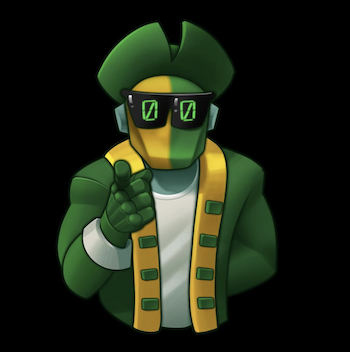George Mason University hosted its third annual collegiate hackathon, PatriotHacks, the weekend of April 16. Nearly 350 students from all over the world spent 36 hours attending workshops, panels, and participating in technology activities and challenges.
“PatriotHacks is one of the most sought-after events at Mason since it started three years ago,” said Kammy Sanghera, interim executive director of the Institute for Digital InnovAtion (IDIA), who worked closely with PatriotHacks student organizers Harjot Singh and Jared Ponmakha from the newly approved School of Computing.
The hackathon is a crossdiscplinary event supported by the IDIA, along with the College of Engineering and Computing, College of Science, Virginia Serious Game Institute, Institute for a Sustainable Earth, and Institute for Biohealth Innovation. Open to students of all majors, PatriotHacks is managed by and for students and is free for all registered participants.
Local sponsors included FDM, Cybersecurity Youth Apprenticeship Initiative (CYAI) by ICF and the Fairfax County Economic Development Authority (FCEDA), this year’s platinum sponsor.
“PatriotHacks is all about the technology of the future—creating, innovating, learning, gaming, and revolutionizing technology, and [it is] also about the teams that you create for the hackathon,” Victor Hoskins, president and CEO of the FCEDA, said in a pre-recorded video that kicked off this year’s event. “We want to encourage this kind of thinking because this is how big things get done.”
The competition is an example of the university’s commitment to increasing computing engagement for all of its students.
“PatriotHacks is a creative way to expand the pipeline of future developers,” said Aurali Dade, Mason’s interim vice president for research. “But all of our students, regardless of discipline, can benefit from the exercise of tech problem-solving.”
This year’s event brought students together to solve the problems of their choice. Different tracks were suggested to students, and prizes were given in various categories including best overall, financial tech, health, sustainability and education.
First time PatriotHackers were able to participate in the beginners/novice category, and there was also prizes awarded for the best all-female hacks.
“We had the wonderful opportunity to provide various workshops for students, including insightful and thought-provoking panels like the Women in STEM panel and a Junior Developers panel, as well as practical and more hands-on workshops like ‘Intro to GIT’ and ‘FDM Resume Workshops’” said Mason computer science major Harjot Singh, student leader and manager of the workshop and student experience logistics for the event.
The nonstop event concluded with the submission of student projects on Sunday.
“It was good to see an excellent distribution in the complexity of the projects,” said Mason graduate student Ranjita Gunda, co-lead student organizer and one of the judges. “I was pleased to see various health applications that provided resources that one would need during the COVID-19 pandemic, including the Preposterous Posture app to aid the user with their posture while using their computers.”
This year’s format was a little different than what students are used to due to COVID-19 restrictions, but nonetheless engaging.
“Running around finding workshop rooms, sitting around a table whiteboarding ideas, and giving demos to judges was something that we as organizers all missed from that classic hackathon experience, but we were able to leverage several virtual platforms to give participants a similar in-person experience,” says Mason computer science major Jared Ponmakha, the co-lead organizer.
Participating students also had the opportunity for professional development. Mason graduate student Utkarsh Agarwal served as a student liason for communicating with industry partners.
“PatriotHacks is an exciting competition,” said Agarwal, who is working on a master’s degree in computer science. “It was an opportunity to build resumes and make memories that last a lifetime.”
Learn more at patriothacks.org. Follow PatriotHacks on Twitter and Instagram.

